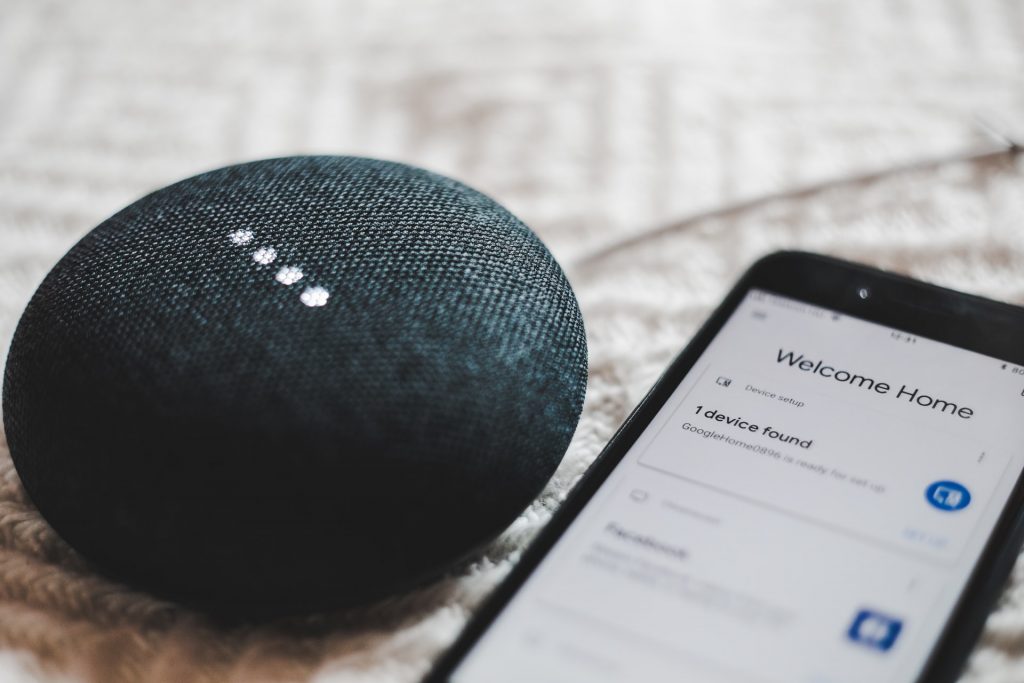“Alexa, what’s the weather today?”
“Hey Google, show me the route to my nearest Starbucks.”
From smart home assistants to self-driving cars, Netflix recommendations to facial recognition software, artificial intelligence (AI) has become ubiquitous in our daily lives.
The term was coined in 1956 by John McCarthy at Dartmouth College. Known as the father of AI, he defined it as “the science and engineering of making intelligent machines, especially intelligent computer programs”.
Since then, AI has evolved into a broad field of study that encompasses computer science, robotics, statistics, philosophy, linguistics, psychology, neuroscience, and other disciplines.
Today, artificial intelligence is being applied across diverse industries including healthcare, finance, manufacturing, and retail. At the start of 2021, the International Data Corporation (IDC) forecasted that the global revenue for the AI market would total $327.5 billion by year-end.
As AI becomes more pervasive, it is changing the way we work and live.
Let’s take a look at six key AI trends for 2022:
1. AI augmenting human creativity

An early example of AI being applied to the creative sphere is when IBM’s Deep Blue computer beat chess champion Garry Kasparov in 1997.
Since then, AI has advanced significantly and is now being used to enhance human thinking by providing a great jumping-off point in the creative process. In 2021, we saw the rise of GPT-3-based apps serving a wide range of creative purposes such as AI-powered writing tools, chatbots, image generation, language learning, and code generation.
And 2022 will see AI-assisted creativity proliferate. For example:
- We’ll start seeing more AI-based tools designed specifically for writers, musicians, filmmakers, artists, and other creatives.
- Low-code and no-code tech will bring software development and AI to the masses enabling anyone to build high-quality applications.
- AI systems will help augment product development and assist designers in creating new products and services. These systems will be able to understand user requirements, analyze market conditions, and generate new designs.
- There’ll be improvements in Natural Language Processing (NLP) improving the current ability of machines to generate text mimicking human language.
- AI-driven machine learning algorithms might be used to generate new artworks from scratch.
- AI will help software engineers write code faster and more accurately.
- AR and VR will become more mainstream.
- AI assistants will help humans learn new skills such as programming and design.
2. AI and the workplace

In 2022, artificial intelligence at scale will begin to transform the workplace.
AI will enable companies to automate repetitive tasks making it easier for employees to focus on higher-value activities, especially with the rise of remote work.
We’ll start to see AI-enabled virtual assistants assisting with tasks like scheduling meetings, booking travel, and managing email as well as performing basic administrative functions such as payroll and expense management.
AI will also give employers greater insight into employee performance and behaviors which will lead to better hiring decisions and training programs.
Business objectives will be easier to define and challenges easier to predict.
According to the research company Gartner, by 2022, “one in five workers engaged in non-routine tasks will rely on AI to perform certain jobs”.
3. AI in the Metaverse

Mark Zuckerberg’s rebrand of Facebook’s parent company as Meta in October 2021 spawned dystopian fears, memes, as well as hype about the ‘next version’ of the internet – the metaverse.
So what is the metaverse?
In simple terms, the metaverse refers to an immersive virtual space where people can meet, connect, interact, chat, share content, and even buy or sell goods with each other via 3D avatars – a digital representation of yourself.
In 2022, it’s predicted that we’ll see an increase in the number of applications that use AI technology to create virtual worlds or ‘metaverses’. These metaverses will be used for entertainment purposes such as video games, movies, music, and social media along with developments in other fields such as e-commerce, sports, real estate, finance, sales, and education.
For example, the metaverse could include a virtual reality (VR) environment where you’re able to walk around a cityscape, visit museums, experience concerts, work together in different languages, or participate in an educational simulation.
The metaverse could also allow users to engage in real-time collaborative projects. For instance, if you wanted to build a house together, you’d be able to collaborate on design ideas, materials, and construction plans.
4. The Internet of Things (IoT) will grow exponentially

In 2022, the percentage of IoT devices will comprise 61.9% of all devices. That’s massive!
IoT devices are products connected to the internet or a network. They include everything from smart home appliances to fitness trackers to smart vehicles to autonomous farming equipment.
These devices have the ability to communicate with each other, collect data about their environment (from the weather to traffic patterns to stock prices) and share it with others, as well as send alerts to people or take action themselves.
5. Healthcare and AI

AI is revolutionizing medicine and may become one of the biggest disruptors in healthcare over the next decade.
IBM’s Watson Health, for example, combines cognitive computing, natural language processing, clinical data, deep learning, and cloud technologies to provide insights and actionable recommendations from large volumes of unstructured data to help physicians deliver better health outcomes.
In 2022, with the right combination of technology and expertise, healthcare organizations will be able to create their own AI solutions tailored to meet specific needs.
Eventually, AI will be able to diagnose diseases earlier, predict future health risks, and provide better treatment options.
AI will power most medical imaging modalities including MRI, CT scans, ultrasound, and X-rays. Smart medical devices will be used both in and outside hospitals to monitor patients, smartphones and wearables will record health data and predict risks, while telemedicine combined with AI will reduce healthcare costs to provide better support to developing nations.
Augmented reality (AR), which superimposes digital objects onto real-world views, is still in its infancy but shows promise for training surgeons to perform complex procedures before they operate.
However, there are valid concerns about the use of AI in healthcare. One issue is ensuring that patients understand the benefits and risks of adopting AI technology.
6. Increased importance to ethics and regulation in AI

The current use of AI is a free-for-all where imagination is your only constraint.
Consider this op-ed written for The Guardian using AI or this Tweet detailing GPT-3’s harmful biases.
In 2022, we’ll see significant progress in the ethical use of AI as regulations and standardized guidelines come into force.
Take these issues:
- Who is to blame when a self-driving Tesla malfunctions and causes a car accident – the driver, autopilot, or the company?
- How do we stop people using AI from spreading misinformation?
- What happens when AI makes poor decisions such as recommending a candidate for a job based on their political beliefs rather than qualifications?
As the shiny-object syndrome fades, we’ll see more collaboration between governments, private companies, and academic institutions to develop best practices and effective legislation for the use of AI.
So what does all this mean for you?
Well, AI is here. And it is here to stay.
To remain relevant in 2022, you need to start thinking now about how you can position yourself to take advantage of this emerging technology. It’s important to figure out how to ethically use AI in novel ways to add value to your business operations, customers, and clients.
A Penny for your thoughts?
How do you think AI will transform the world over the next decade? Or even the next century?
We’d love to hear your views in the comments below.
- 7 Inspirational Writing Quotes (And What Writers Can Learn From Them) - September 1, 2022
- 5 Effective Ways For Marketing Your Small Business On A Budget - August 24, 2022
- The Importance of Branding for a Small Business (Plus Tips To Get Started) - August 24, 2022
